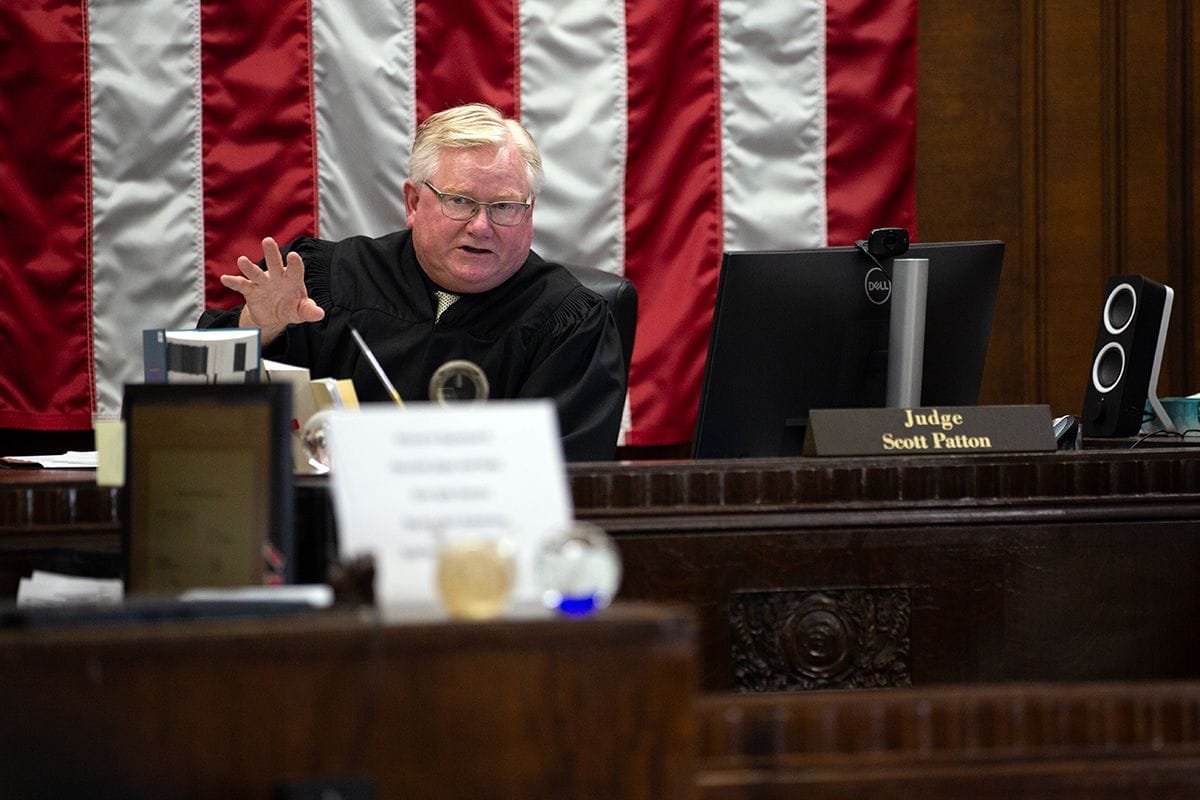Judge chides DA's office, drops manslaughter case against cops
Judge Scott Patton slammed the DA's office for its "rushed and careless work" in filing the manslaughter case after the death of Mario Gonzalez.

A judge dropped a high-profile manslaughter case against two police officers Monday, saying the Alameda County DA's office "jeopardized the prosecution" by failing to file the necessary paperwork in time.
The manslaughter case can proceed against a third officer, however, because he was out of the country for five months, which gave prosecutors more time to file charges, Judge Scott Patton wrote Monday in a 13-page order.
The Alameda County DA's office "firmly put the prosecution of this case in jeopardy" by waiting until the last minute to file manslaughter charges against the officers, Patton wrote.
In his ruling, the judge slammed the DA's office, where he spent more than two decades as a prosecutor, for its "rushed and careless work … in filing this complaint."
A review in 2022 by DA Nancy O'Malley found that the evidence against Alameda police officers Cameron Leahy, James Fisher and Eric McKinley did "not justify criminal charges" in connection with the death of Mario Gonzalez in police custody in 2021.
The initial autopsy found that Gonzalez, 26, died due to the "toxic effects of methamphetamine" with contributing factors listed as stress related to restraint, morbid obesity and alcoholism.
Mario Gonzalez case part of broader review by DA Pamela Price
DA Pamela Price charged the officers with involuntary manslaughter in April after an expert she hired ruled that they had kept Gonzalez in "a prone position for an extended period," causing him to suffocate during a seven-minute interaction on April 19, 2021.
The expert's analysis was part of a broader review of in-custody deaths and officer-involved shootings Price undertook when she took office nearly two years ago.
The expert said it had been appropriate for the officers to handcuff Gonzalez, but keeping him face down on the ground in handcuffs for so long — three minutes and twenty-five seconds — was "unreasonable, excessive, and contrary to generally accepted police practices."
The DA's office filed involuntary manslaughter charges against the officers on April 18, a day before the three-year deadline.
But the filing did not include an arrest or bench warrant, as required by law.
"The facts are undisputed that a felony complaint was filed on 4/18/24 and that no arrest warrant was issued on or before the expiration of the statute of limitations on 4/19/24," Patton wrote in his order.
That sunk the case against officers Leahy and Fisher, he wrote, because it caused the three-year clock on the statute of limitations to run out.
Read more court coverage on The Scanner.
The violation was not "procedural or technical," Patton also noted, because the defendants have "a substantive due process right."
"The requirement that a case must commence within the statute of limitations is a bedrock principle of civil and criminal law," he wrote.
Patton went on to dismiss arguments put forward by the Alameda County DA's office — saying they were "without merit" and "simply unsupported" by law.
And he said the prosecution's claim that a summons or notice to appear could replace an arrest "was inappropriate."

In Monday's ruling, Patton also criticized the argument put forward by McKinley's defense attorney, James Shore, calling it "absurd."
Shore had argued that McKinley would not have come to court for arraignment had the prosecution not fooled him into thinking there was a summons requiring his presence. In fact, there had been no summons.
As a result, Shore said the case against McKinley had to be dismissed because of the "outrageous government conduct."
But Patton wrote that, under the law, this would have required conduct that was "so grossly shocking and so outrageous as to violate the universal sense of justice."
The prosecution's behavior simply had not risen to that level of misconduct, the judge said.
As a result, Patton said the DA's office still had time to re-file charges against McKinley because his time out of the country, on a volunteer mission in South Africa with his family, had stopped the statute-of-limitations clock.
Both sides could still appeal Patton's ruling.
As of publication time, neither Shore nor the DA's office had responded to a Scanner request for comment about the decision.
The decision is only the latest blow for the already embattled Price administration — particularly as the recall election approaches in November.
Update, Oct. 8: The DA's office did not respond to a Scanner request for comment but issued a brief statement in broader a press release: "It is unfortunate that all three defendants will not be held accountable for their alleged roles in the death of Mario Gonzalez. It is important to note that the court’s decision was not made based on any lack of merit. Our prosecutors will proceed to file an amended complaint against Officer McKinley."





